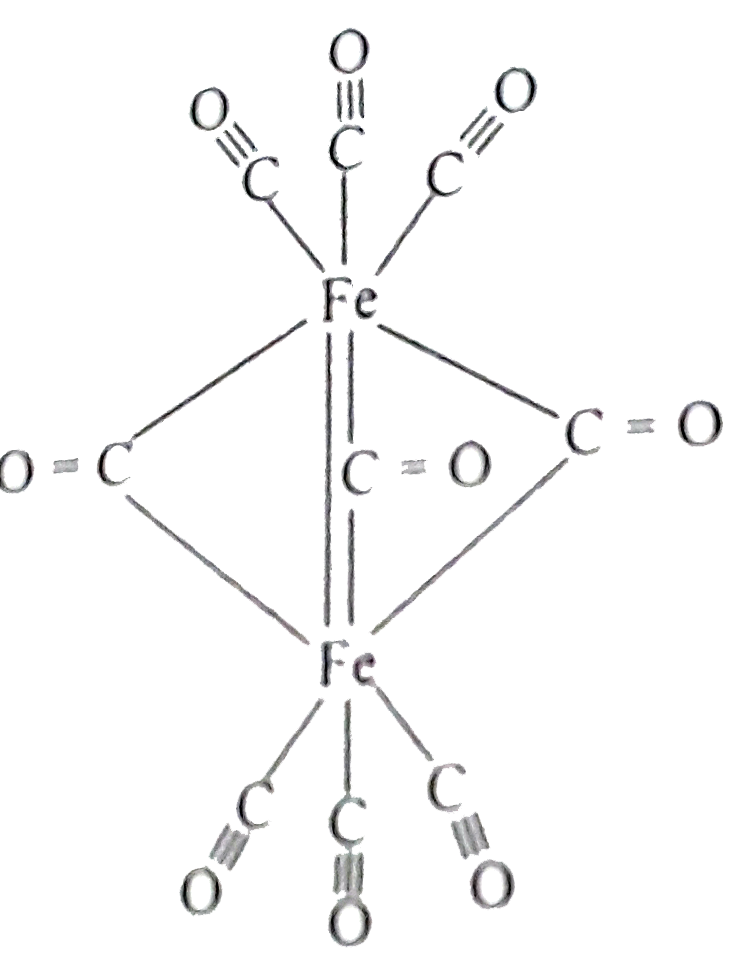Which of the following statement is/are correct ?
A
In Fe2(CO)9 all CO bond length are not equal
B
In Fe2(CO)9, 3 CO bond length are larger rest of six are smaller than these three.
C
Suppose bond length of CO is 1.128Å and In Fe2(CO)9 all CO bond length are larger than 1.128Å.
D
Fe2(CO)9 is an organo metallic compound.
Text Solution
The correct Answer is:A, B, C, D
|
Topper's Solved these Questions
- TEST PAPERSBook:BANSALChapter:TEST PAPERSExercise:MATHS SECTION - 2 PART A [SINGLE CORRECT CHOICE TYPE]
Explore 8 Videos
- TEST PAPERSBook:BANSALChapter:TEST PAPERSExercise:MATHS SECTION - 2 PART A [PARAGRAPH TYPE]
Explore 6 Videos
- TEST PAPERSBook:BANSALChapter:TEST PAPERSExercise:CHEMISTRY SECTION - 2 [PARAGRAPH TYPE]
Explore 6 Videos
- PROBABILITYBook:BANSALChapter:PROBABILITYExercise:All Questions
Explore 1 Video
- THERMODYNAMICSBook:BANSALChapter:THERMODYNAMICSExercise:Match the column
Explore 7 Videos
Similar Questions
Knowledge Check
Which of the following statements is/are correct?
AAdenine and cytosine are substituted purinesBthe sugar present in DNA nucleoside is deoxyriboseCRNA contains uracil instead of thymine present in DNADIn nucleic acids, a phosphate group is bonded to a hydroxyl group of sugar.Which of the following statements is/are correct?
AThe cell constant of an electrolytic cell is measured as the product :kR rather using l/a.BAs an electrolytic solution is diluted, its conductance, equivalent conductance, and molar conductance increase.CKohlraushc's law may be applied to calculate molar conductance at infinite dilution for both weak and strong electrolytes.DKohlrausch's law may also be applied at any concentrated of the electrolyte.Which of the following statements is/are correct?
AThe mass ofneutron is slightly greater than that of proton.Be/m ratio of particle in anode rays depends upon the nature of the gas taken in the discharge tube.CIn H-atom, the electron revolves at a fixed distance of 0.53 Å.DAngular momentum of all s-electrons is same.
Which of the following statements is/are correct ?
View SolutionWhich of the following statements is/are correct?
View SolutionWhich of the following statements is/are correct?
View SolutionWhich of the following statements is/are correct?
View SolutionWhich of the following statements is/are correct?
View Solution

